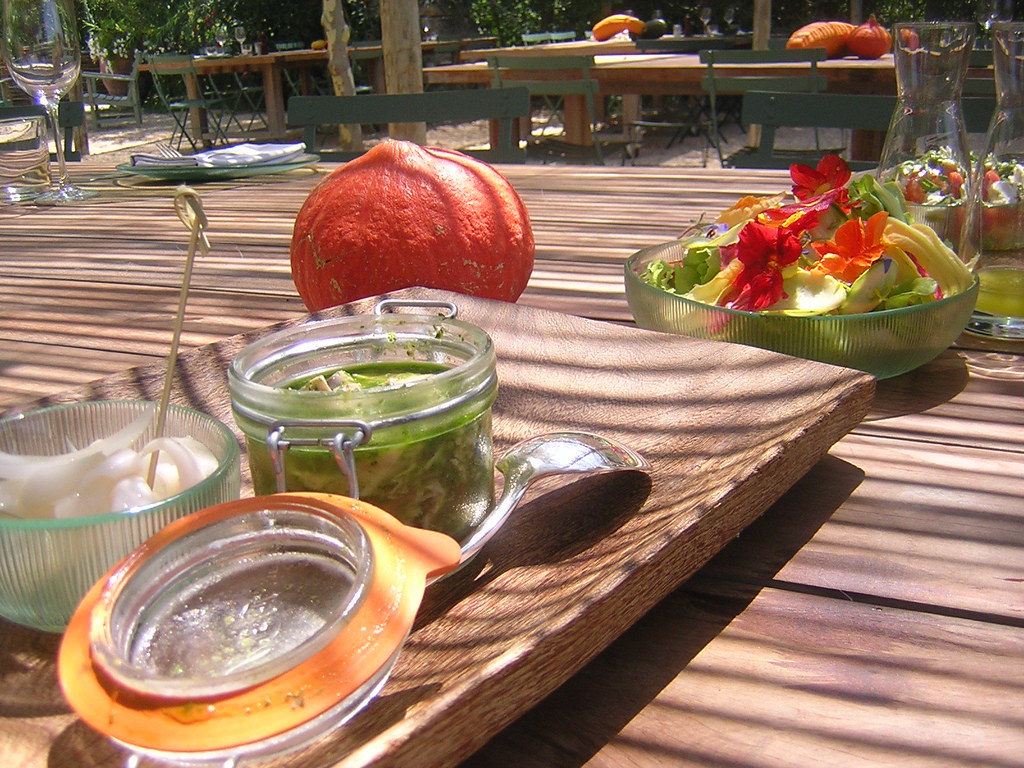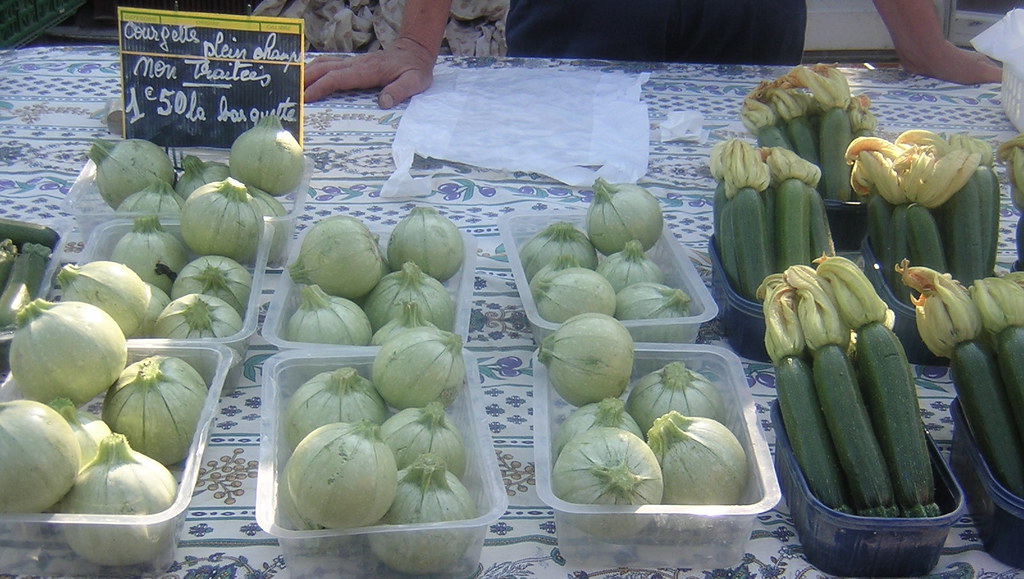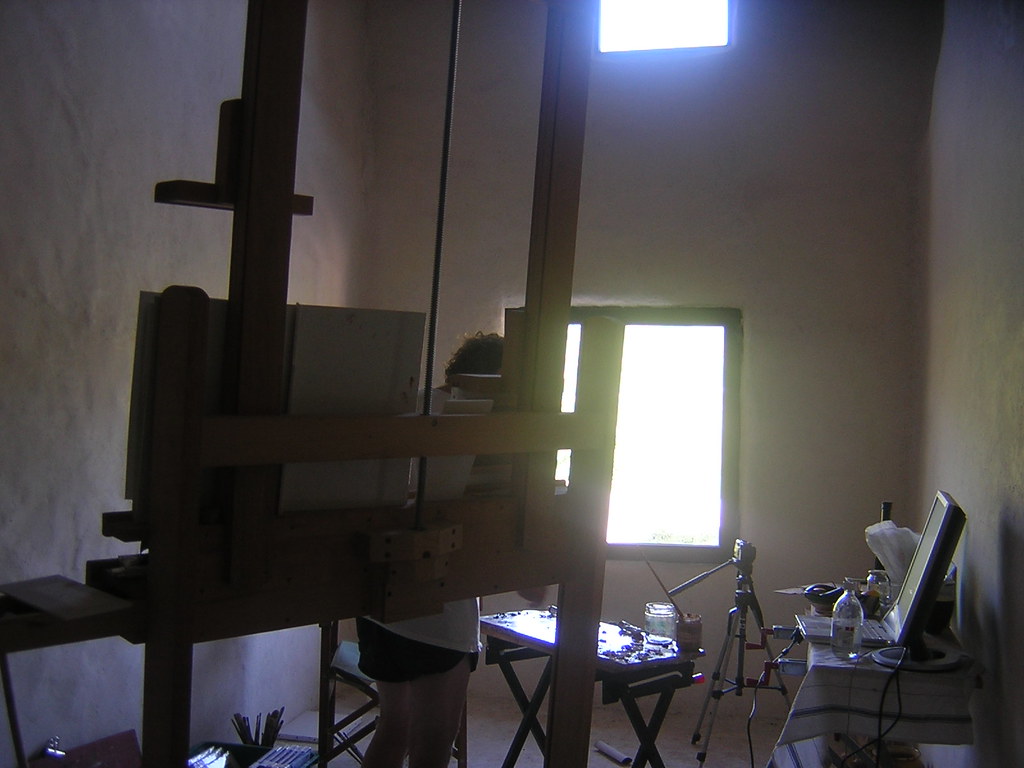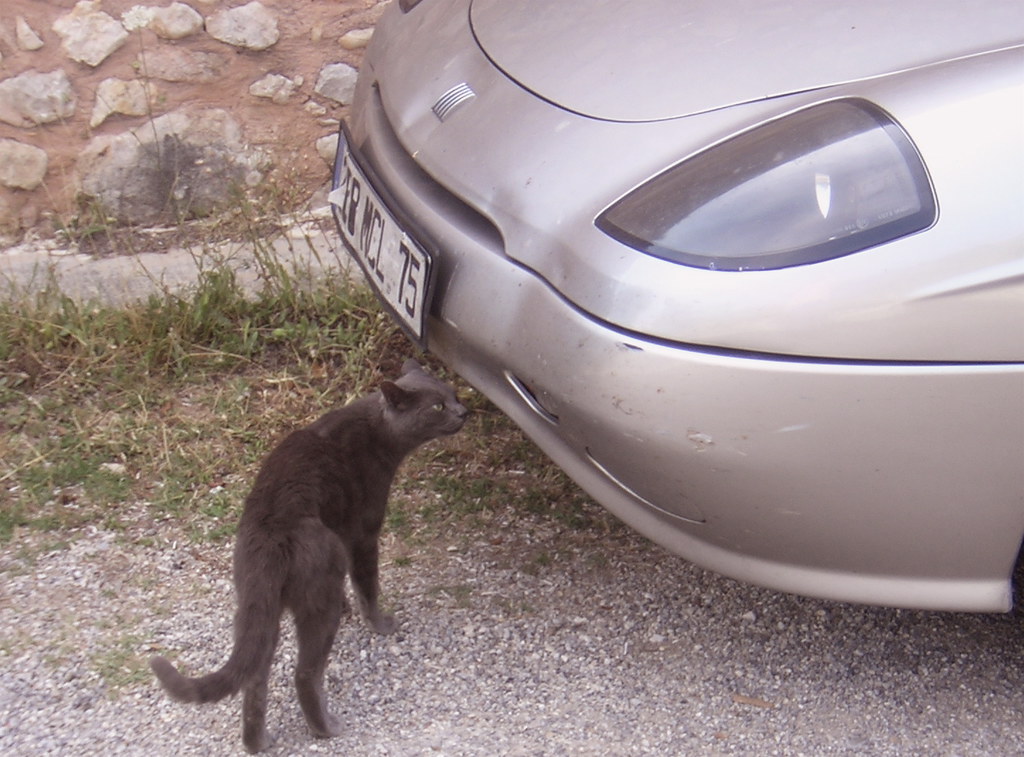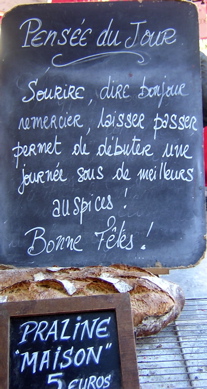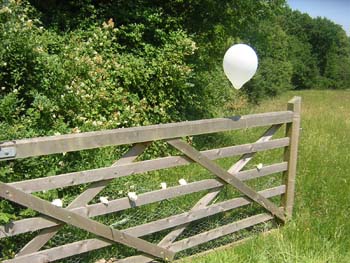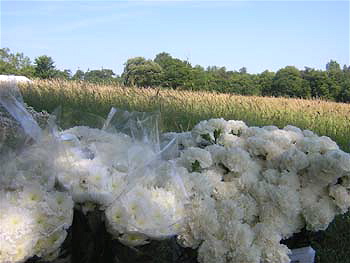A group of creatures, their heads peeping out from under strangely shaped shells, make their way onto the RER train towards Paris chanting “Allez les Bleus!” to the tune of the interminable chaconne they have just finished rehearsing. They break off occasionally to dispute whether, in terms of baroque style, the accent should come on the weak ‘lez’ and their voices mix with the tooting of horns and children with blue faces squealing “Bisou Zizou!”.
We are on our way to Nantes, but the train isn’t till nine so we can catch the first half of the match in ‘Quick’ burger.
This year, for the first time, I have resigned myself to being a world cup widow. Clearly there’s no reason in fighting it. Now, who is this person, I wonder, diving into the first bar she can see with a screen in Paris Montparnasse, grasping the head of her cello and screaming “Zizou. We love you!” (God, that felt good!) at the top of her voice when the chiselled God of football not only appears but plays a stellar penalty in the first few minutes….?
Oooops, it’s me!
It’s one all and we board our train. Violins, theorbos and recorders are piled high in the bar as people crowd round a fuzzy radio….
And then, apparently, in the shoot out, our beloved Zizou, whose farewell match this is, furiously head-butts an opponent and is sent off in disgrace with a red card.
“Je regrette de vous informer….” The train conductor announces, and it’s all over for Zizou.
I have been re-reading a book, which has some fascinating things to say about rage. ‘Destructive Emotions’ is written by Daniel Goleman and it chronicles the meetings in Dharamsala between the Dalai Lama and various world authorities on religion, education, culture, psychotherapy and brain science, all searching to find a way to better understand and thus handle ‘destructive’ emotions. (As ever, the Dalai Lama is completely open throughout the debate. The last thing he is interested in is spreading Buddhism.)
In the Buddhist approach, the first stage of an emotion is always a thought. If you can catch the thought, they say, and see it just as a thought you can pre-empt the emotion and choose if and how to act on it. Those of us who are not so enlightened have a second chance when, in response to the thought, the emotion first appears. Ideally we observe its physical, chemical and mental components and by observing them we stay out of their grip. Sadly, most of us skip any awareness of these first two stages and launch straight into the refactory period during which we are in the grip of the emotion. Because, during this period, our clarity of mind is disturbed, resolution is impossible until the emotion has released its grip. As I presume we all know, this can be a long time. In extreme cases it can be forever.
What about these thoughts that fuel our anger, I wondered. Mostly, in my case, they are judgements, but judgements are, of course, just thoughts - from “We deserve to win the match and not they.” to “These people are impure and we must get rid of them to make the world a better place.” - so the other day I did a little practice:
I was washing up. Julian was watching football, taking a well earned rest after a long and hot day’s painting, posting and packing. As I watched up our breakfast bowls, his lunch and our supper I could feel the habitual washing up anger rising. I was about to make some snide comment when, suddenly, I saw the thoughts that were fuelling it:
“It’s not fair.”
“ I ALWAYS do the washing up”
“He doesn’t love me because he is watching the football”
All statements were so clearly untrue that I just laughed and even started to enjoy the feel of the soapy water on my hands.
I remember as a child chanting “Sticks and stones will break my bones but words will never hurt me.” As an adult I think this is tragically far from the truth; that words hurt just as much as bones broken, and that our home was much better off without the words I could have spoken had I not arrested my anger.
The more I read of the book, the more I began to see the huge repercussions should we each take responsibility for trying to discipline our minds so that we can experience these first and second stages.
The day after Le Match, I sit down with my colleagues in a church outside Nantes to record the interminable chaconne. Behind me the choir sing gorgeous squidgey French words like charm- e and princess-e and amourrrrrr. In a break, I turn to my colleague and ask her what she thinks of Zizou’s behaviour:
“I think he butted that guy because he wanted to show us that he was not a God but that he was just a Man. It was his final heroic act!”
Lucky his name rhymes with kiss and not head-butt, I think, before I wonder what they would have thought in Dharamsala.
